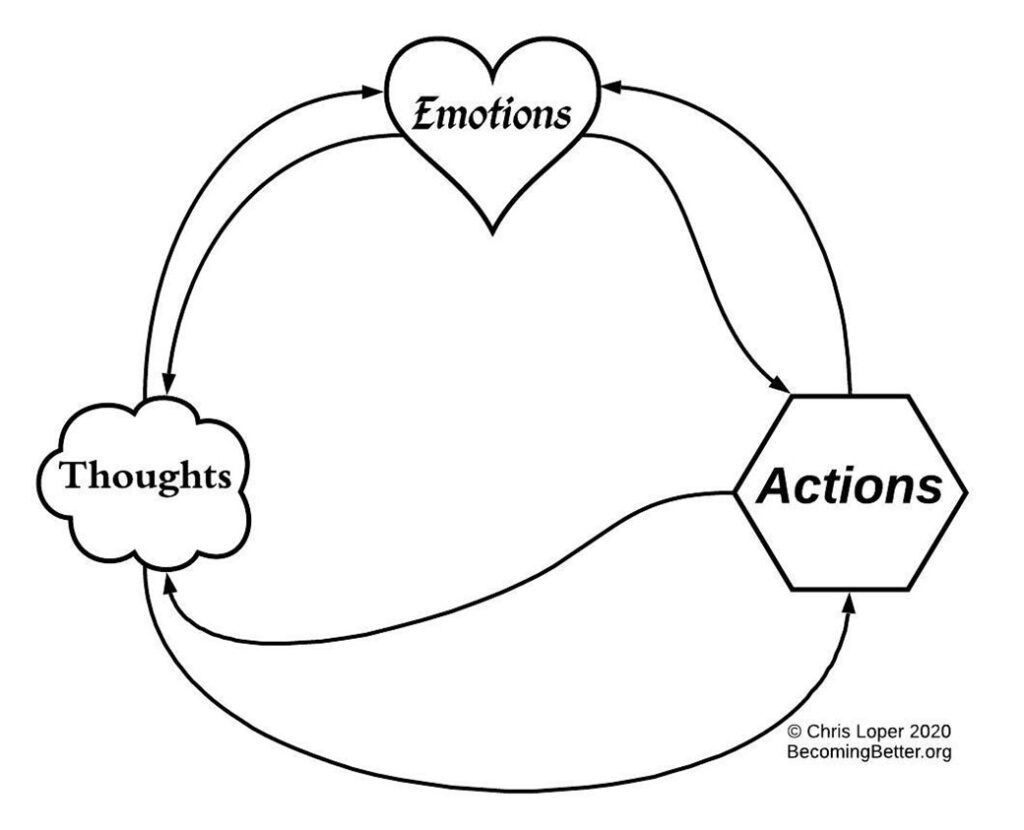
My partner and I got engaged last month. (Yay!) Christina and I are very excited and eagerly planning our wedding. But while this is an important milestone in our relationship, I know that there’s nothing magical about marriage. A loving, lifelong partnership isn’t something that just happens; it’s something you create.
So, in an effort to help with that creation, I’ve written the following marriage advice for myself. Perhaps you’ll find it helpful too, and don’t hesitate to send me additional advice of your own. Given that I just got engaged, I’m obviously no expert on being married, so I’ll take all the help I can get.
Marriage isn’t a tit-for-tat relationship.
You don’t do half of the work and then wait for her to do the other half. You give 100% of what you can and know that she’s doing the same. It’s not 50/50. It’s 100/100.1
(For a deep dive on this idea, read “Why 50/50 Relationships Don’t Work.”)
Say thank you.
Don’t take her for granted. Don’t take the things she does for you or for the household for granted. Express your gratitude regularly. You are so very lucky to be her partner.
Accept bids for your attention.
This comes from renowned marriage researcher John Gottman. He found that couples who stay together are much better at responding to one another’s “bids” for attention.2
For example, when Christina tells you something about her day, do you just say, “Mm-hm” and continue whatever you’re doing, or do you pause what you’re doing to give comments or ask follow-up questions? The latter option is accepting her bid for your attention.
Accepting bids for your attention shows that you’re interested in what she has to say and, more importantly, interested in her. So notice when she’s making a bid for your attention and accept it, even if it’s an interruption, even if it doesn’t seem important to you. It’s your life partner requesting your attention and actively seeking out interaction with you, and that’s important.
(For more Gottman wisdom, read The Seven Principles for Making Marriage Work.)
Seek first to understand, then to be understood.
Now, Chris, I know you like to make snap judgments and then give authoritative advice. You’re a quick thinker, and you’re in the advice-giving business, so this makes sense, but it’s not the right way to respond to Christina.
Don’t assume you’ve understood. Paraphrase back and confirm that you’ve understood. Christina is smart, so if what she says doesn’t make sense, it’s probably not because she’s wrong – it’s probably because you’re missing something. Be curious. Ask clarifying questions. There’s often something deeper going on.
We have Stephen Covey to thank for this idea. “Seek first to understand, then to be understood” is one of The 7 Habits of Highly Effective People.3
ANTs happen.
You will have negative thoughts about her from time to time.
These thoughts are not necessarily true. Use logic and evidence to argue against them. And even if they are true, they’re never the whole picture and they’re almost never helpful or important. You don’t have to act on them or embody them. Don’t believe everything you think.
And you shouldn’t judge yourself for having these thoughts. Automatic negative thoughts (ANTs) are a normal part of being human. Recognize them for what they are and let them go.
Love is a verb.
This also comes from Stephen Covey. (There’s a reason The 7 Habits of Highly Effective People is my top book recommendation for self-improvement.)
Most of the time you think about love, you think about the emotion – the feeling you have for Christina. But that’s only one side of the love coin. On the other side of the coin, love is a verb – the loving actions you do for her.3
Related to this is a better way to think about the connection between the emotion of love and loving action.
I do loving things for her because I love her, you think. But the reverse is also true. By taking loving action, you create a stronger feeling of love for her because of the feedback loop between your emotions and your behaviors.

Thoughts are also a part of this feedback loop. That means loving action is the best way to combat ANTs because actions speak louder than thoughts.
Before you judge or criticize, ask this question.
How am I that?
Pretty much anytime you notice a shortcoming in someone else, you possess a similar shortcoming. Pausing to ask “How am I that?” helps to remind you that you’re not perfect, so you shouldn’t expect your partner to be either.

And then, if you want to take another step in the right direction, ask yourself, “When I’m like that, what do I need?” When I’m feeling irritable or impatient, or when I’m just struggling with something, what kind of support do I need from my partner? Compassion? A hug? Whatever it is, Christina would probably appreciate the same thing.
Assume positive intent.
Remember that your partner loves you very much. She’s never going to hurt you on purpose. If it seems like she’s being inconsiderate, rude, or otherwise unkind, assume this is not on purpose.
Give her the benefit of the doubt. And if it comes down to a case where she either wronged you because of maliciousness or wronged you because of momentary stupidity, give her the benefit of the dumb.
Communicate early and often.
If it seems like she’s not taking your needs into account, it’s probably because she’s not aware of your needs. Christina wants to take your needs into account. Of course she does – she loves you. But she can’t read your mind. Speak up.
When you’re tired, you tend to be terse and underexplain things, especially your own choices and plans. Don’t. It doesn’t make for good conversation or clarity of communication.
Explaining your feelings is hard, but that doesn’t mean you’re “bad” at it. With practice, you can become more skilled.
Sit together on the couch to talk.
I have chronic pain in my feet due to a rare condition called erythromelalgia. And when this is flaring up, I can’t stand for very long without being in a lot of pain. At such times, when I’m standing up, part of my brain is running a countdown clock that’s keeping track of how much longer I can stand to be standing.
So if someone’s trying to talk to me (and that someone is most often Christina), I’ll be unable to give them my full attention. As the pain builds, I can’t think straight or answer relatively easy questions. Therefore, we’ll have better conversations if we’re sitting down.
Given all that, this advice is partly unique to my medical condition, but I also think there are some universal reasons to sit together on the couch when you’re having a conversation, as opposed to standing and facing each other or sitting across the table from one another.
Sitting on the couch facilitates more physical closeness and touching. It feels more relaxed than standing or sitting at a table. And sitting side-by-side feels more collaborative, less oppositional. So it’s probably a good idea for everyone.
Take good care of yourself.
Remember that you cannot fully love someone else unless you have cultivated self-love, and the best way to cultivate self-love is through self-care.
Conflicts are far more likely when people are feeling scarcity of some kind, whether that’s lack of food, inadequate sleep, or insufficient time in nature. Your relationship will thrive most easily when you feel a sense of abundance.
It’s hard to show up fully for your relationship when you’re not well. So for the sake of your marriage, continue to make self-care the first priority each day. Stick to your morning routine – not just for you, but for her as well.
It’s not selfish to take care of yourself first; it’s a smart strategy for the long-term health of your mind, your body, and your relationship. You want a long, happy, healthy life together. That requires self-care.

Trust that she knows how to take care of herself.
Christina is a smart, well-informed adult. She doesn’t need you to tell her how to take care of herself. Don’t give unwanted advice. Don’t push, pull, poke, prod, or cajole. Lead by example, but let her make her own choices.
1 I can’t recall where I first heard this, but most likely it was from Brian Johnson.
2 Gottman, John. M., Ph.D. The Seven Principles for Making Marriage Work: A Practical Guide from the Country’s Foremost Relationship Expert. Harmony, 1999.
3 Covey, Stephen R. The 7 Habits of Highly Effective People: 30th Anniversary Edition. Simon & Schuster, 2020.
